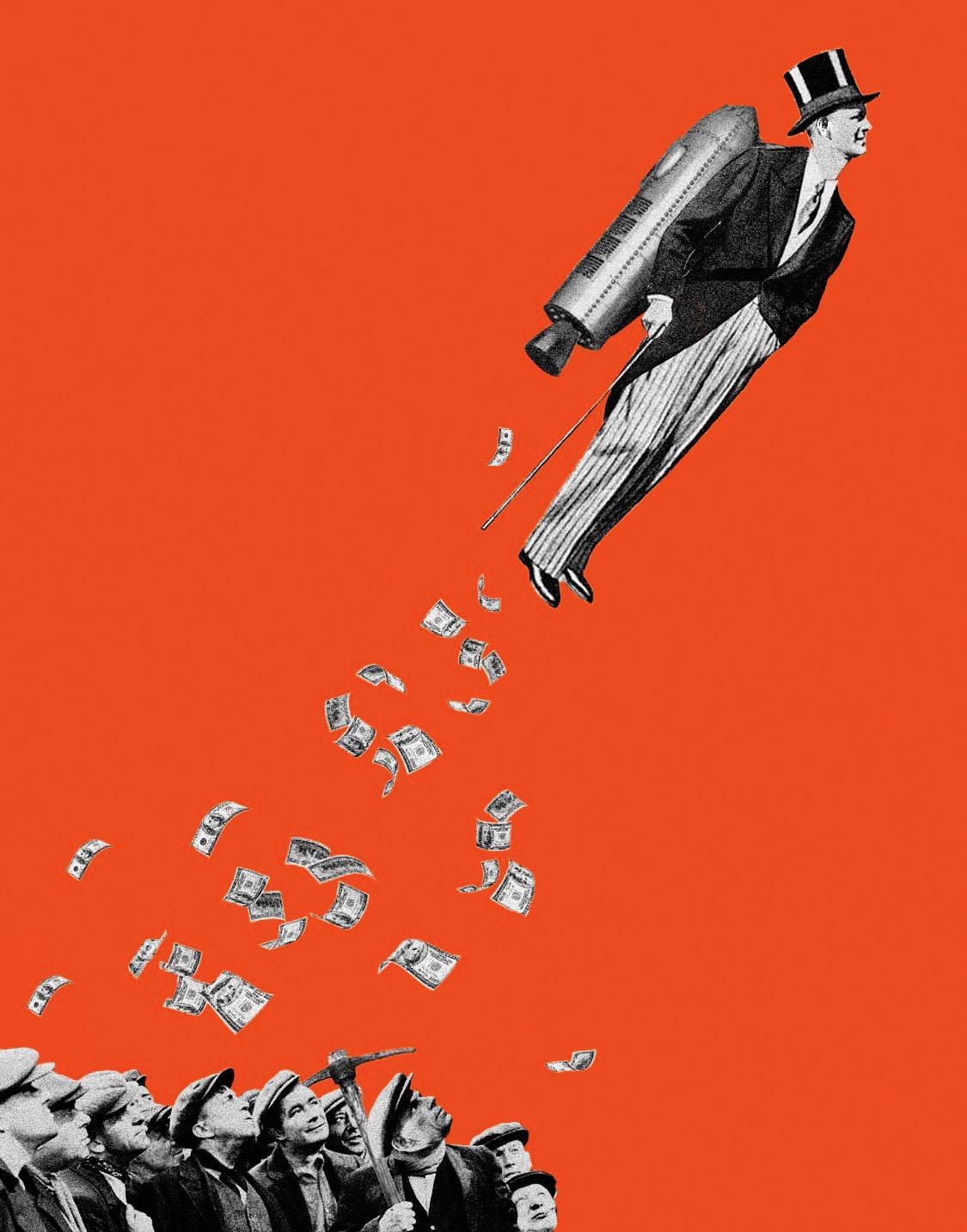RIO DE JANEIRO, BRAZIL – It took the world’s 1,000 wealthiest people only nine months to see their fortunes return to pre-pandemic levels, while it will take the poorest 14 times as long, or more than ten years, to replace the losses caused by the economic impact of the disease.
The findings are based on The Inequality Virus report, released by Oxfam on Monday, January 25th, at the opening of the World Economic Forum in Davos, Switzerland.
In February 2020, the wealthiest people’s fortunes were identified, representing 100%. In March, this wealth dropped to 70.3%, rising back to 100% in November. By way of comparison of the speed of recovery, it took the world’s wealthiest five years to recover what they lost during the 2008 financial crisis.

“The pandemic has exposed inequalities – in Brazil and in the world. It is shocking to see a small group of privileged people accumulate so much amidst one of the worst global crises ever to occur in history,” said Katia Maia, Oxfam Brazil’s executive director. “While the super-rich make a profit, the poorest lose jobs and income, and are left at the mercy of destitution and hunger”.
The report shows that, worldwide, billionaires accumulated US$3.9 trillion between March 18th and December 31st, 2020, and their total wealth today stands at US$11.95 trillion, the equivalent of what the G20 governments spent to tackle the pandemic. The top ten billionaires alone accumulated US$540 billion in the period – enough to pay for the Covid-19 vaccine for the whole world and ensure that no one falls into poverty.
On the other hand, the pandemic has triggered a job crisis that, according to Oxfam, is the worst in over 90 years. The International Labor Organization (ILO) estimates that about half a billion people are now underemployed or unemployed, faced with extreme poverty and hunger: “When the coronavirus arrived, more than half of the workers in low-income countries lived in poverty, and 75% of the world’s workers had no access to social protections such as sick pay or unemployment benefits,” the organization notes.
Faced with these data, the report notes that the Covid-19 pandemic has the potential to increase economic inequality in virtually all countries concurrently, which occurs for the first time since inequalities began to be measured over 100 years ago. According to Oxfam, society, businesses, governments and institutions must take action based on the urgency to build a more egalitarian and sustainable world.
“The crisis triggered by the pandemic has exposed our collective fragility and the inability of our deeply unequal economy to work for all. However, it has also shown us the great importance of government action to protect our health and livelihoods. Transformative policies that seemed unthinkable before the crisis suddenly proved possible. There can be no going back to where we were before the pandemic,” the text says.
Fairer economies are the key to a speedy pandemic economic rebound, according to Oxfam’s assessment. A temporary tax on the excessive revenues achieved by the 32 global corporations that profited the most during the pandemic could raise US$104 billion by 2020. The amount, Oxfam estimates, would be enough to provide unemployment benefits to all workers affected during the pandemic and to provide financial support to all children and elderly people in low- and middle-income countries.
“Extreme inequality is not inevitable, but rather a political choice. Governments around the world need to use this time of great suffering to build fairer, more egalitarian and inclusive economies that protect the planet and end poverty. The new post-Pandemic period cannot be a repetition of so many past mistakes, which have bequeathed us a world that benefits few at the expense of millions,” Katia added.
According to her, economic rebound must include people in vulnerable situations and there can be no economic recovery without social responsibility. The need to redress inequality is faced with yet another alert factor shown in the document: food insecurity.
The report found that the impact of the pandemic on jobs and livelihoods has rapidly and significantly exacerbated the food crisis. The United Nations World Food Programme (WFP) estimated that the number of people suffering from hunger would increase to 270 million by late 2020 because of the pandemic, an 82% increase compared to 2019. Oxfam estimated that this could translate into between 6,000 and 12,000 people dying each day from hunger associated with the crisis by the end of 2020.
“While one in ten people go to bed hungry, the world’s eight largest food and beverage companies paid over US$18 billion to their shareholders between January and July 2020. This is five times more than the figures raised by the UN in November 2020, with the call for donations for Covid-19,” the document says.
As far as gender is concerned, women suffer the most in this context, according to the document. They are the majority in the most precarious jobs, which were the hardest hit by the pandemic. Worldwide, 740 million women work in the informal economy and, during the first month of the pandemic, their income dropped by 60%, equivalent to a loss of over US$396 billion, according to Oxfam data.
In the United States, 22.000 black and Hispanic people would still be alive, by December last year, had they had the same mortality rate for Covid-19 as white people. The report also says that in Brazil, black people are 40% more likely to die of Covid-19 than white people. If mortality rates for the two groups had been the same by June 2020, the organization estimates that more than 9,200 Afro-descendants would be alive.
Still according to Oxfam, Covid-19 infection and death rates are higher in poorer areas in countries like France, Spain and India. In England, these rates are twice as high in poorer regions compared to richer ones.

